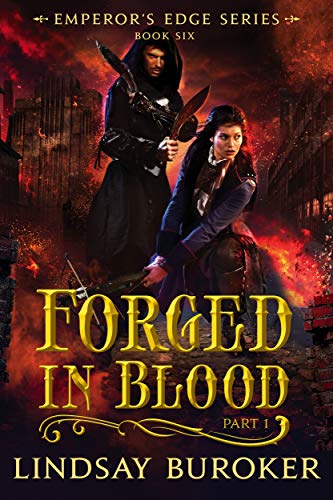 Forged in Blood I (The Emperor's Edge, #6) by Lindsay Buroker
Forged in Blood I (The Emperor's Edge, #6) by Lindsay Buroker Format: ebook
Source: purchased from Amazon
Formats available: paperback, ebook
Genres: epic fantasy, fantasy, steampunk
Series: Emperor's Edge #6
Pages: 378
Published by Lindsay Buroker on May 27, 2013
Purchasing Info: Author's Website, Amazon, Barnes & Noble, Kobo, Bookshop.org
Goodreads
The emperor has been ousted from the throne, his bloodline in question, and war is descending on the capital. Forge, the nefarious business coalition that has been manipulating the political situation from the beginning, has the ultimate weapon at its disposal.
If it was difficult for a small team of outlaws--or, as Amaranthe has decided they should now be called, rebels--to make a difference before, it's a monumental task now. If she's to return idealistic young Sespian to the throne, earn the exoneration she's sought for so long, and help her closest ally win the respect of the son who detests him, she'll have to employ an unprecedented new scheme...preferably without destroying the city--or herself--in the process.
My Review:
And now I remember why I stopped reading this series back in 2013. Not for any bad reasons, I assure you!
 But back then, I raced through the first four books in the series (The Emperor’s Edge, Dark Currents, Deadly Games and Conspiracy), loving every one. I think I was about to pick up book 5, Blood and Betrayal, when I noticed that this book, book 6, was titled Forged in Blood I with the obvious implication that there would be a Forged in Blood II – as there turned out to be. But the titles strongly implied that this book wasn’t exactly complete in and of itself, and I decided that I didn’t want to read this until its second part came out.
But back then, I raced through the first four books in the series (The Emperor’s Edge, Dark Currents, Deadly Games and Conspiracy), loving every one. I think I was about to pick up book 5, Blood and Betrayal, when I noticed that this book, book 6, was titled Forged in Blood I with the obvious implication that there would be a Forged in Blood II – as there turned out to be. But the titles strongly implied that this book wasn’t exactly complete in and of itself, and I decided that I didn’t want to read this until its second part came out.
Then I ran headlong into the “so many books, so little time” conundrum, and didn’t get the round ‘tuit for several years. I picked up Blood and Betrayal a few weeks ago, got right back into everything, loved it, and decided to read Forged in Blood on the long flight back home from Seattle.
It turns out that I assumed correctly. While Forged in Blood I does come to a logical conclusion, that conclusion is a screaming cliffhanger. I was still in mid-flight (Seattle to Atlanta is a LONG flight) and started in on Forged in Blood II with barely a pause for breath.
What we have here is what looks like the beginning of the end of this terrific saga. The story at this point is careening towards the conclusion of its original quest. Way, way back in The Emperor’s Edge, Corporal Amaranthe Lokdon of the Imperial law enforcers was given the assignment to hunt down the Empire’s most dangerous assassin, Sicarius.
It was intended to be a suicide mission. It certainly turned out to be a suicide mission for her career on the “right” side of the law.
But when she failed to capture Sicarius, she found herself a wanted criminal, at the core of a band of criminals, all of whom have bounties on their heads for crimes they either didn’t commit or acts of self-defense. Not that there isn’t a bit of criminality mixed in there, but for the most part, they aren’t guilty – or at least not guilty of much until they all end up on the run.
With both the assassin and the Emperor in their midst. But then, the Emperor hired them to kidnap him to save his from the so-called advisers who planned to have him assassinate. As a result, the people who wanted him dead are now after the entire gang – as well as the Empire itself.
 So Forged in Blood I is the beginning of the end. Start with The Emperor’s Edge and get to know this amazingly awesome – just ask some of them – band of big damn heroes. And end this part of the story on pins and needles, not merely wondering but actively worrying whether all of them will get out of this caper alive.
So Forged in Blood I is the beginning of the end. Start with The Emperor’s Edge and get to know this amazingly awesome – just ask some of them – band of big damn heroes. And end this part of the story on pins and needles, not merely wondering but actively worrying whether all of them will get out of this caper alive.
Escape Rating A-: This is not the end. The, well, let’s call it an interim ending, is a hella cliffie. What makes it so gut-wrenching is that by this point in the series we know and love all of these people, and the way this book ends we fear for all of them in one way or another. It’s terrible, and wonderful, and you won’t be able to keep from diving into part 2 immediately.
At the beginning of the series, we had a band of petty criminals and wrongly accused political victims desperately trying to find a way to survive the many and various attempts on their lives and, most importantly, figure out a way to get pardoned by the Emperor.
Well, most of them want to get pardoned. Sicarius is guilty of every single thing he’s been accused of, and a few hundred more. He was, after all, the previous Emperor’s pet assassin – and he was damn good at his job.
He’s also, unbeknownst to everyone at the beginning, but an open secret by this point, the biological father of the current Emperor. The young and idealistic Emperor is having a difficult time processing it all – but his enemies plan to use the information to keep him from ever taking back his throne.
Because they want to install a puppet emperor and wring the kingdom dry.
There’s a lot of story to unpack by this point. Amaranthe, in particular, still wants a pardon but also wonders if there’s any way back from where this journey has taken her. As a law enforcer, she never believed the excuses of the ends justifying the means, but has discovered that when the ends are her own survival, discussions of means get left by the wayside until afterwards – when the guilt descends.
The young Emperor, Sespian, has been forced to grow up in a hurry while dodging bullets, bombs and even exploding airships. With him, and his idealism, among their party, the purpose of their journey has changed from pardons to revolution. Getting a close up view of just how screwed up the empire is for anyone not in power has inspired them all to invent a new form of government – a Republic. All they have to do is get enough power to push their reforms through – and then be willing to let that power go when they’re done.
Not an easy job. It’s what made the American experiment such a chancy thing at the time. That we have, at least so far, had regularly scheduled and orderly changes of power built into the system. (We’ll see how that goes in the future.)
What makes this series so much fun is the way that the band of misfits manages to work together, both because and in spite of their differences. This is a series where the snark, of which there is a lovely lot, is based on our knowledge of the characters and their knowledge of each other – not on jokes per se. A lot of that humor is gallows humor, because even at the best of time they are only one step out of the frying pan and one jump away from the fire.
 This is a series where the worldbuilding has gotten deeper as it goes, as have the chasms that our heroes must leap across in order to stay alive and one step ahead of their many, many pursuers. The pace never lets up – leaving the reader breathless with anxiety and anticipation at the end.
This is a series where the worldbuilding has gotten deeper as it goes, as have the chasms that our heroes must leap across in order to stay alive and one step ahead of their many, many pursuers. The pace never lets up – leaving the reader breathless with anxiety and anticipation at the end.
I couldn’t wait to start Forged in Blood II, and so far it’s every bit as good as the rest of the series. We’ll see for certain in next week’s review!

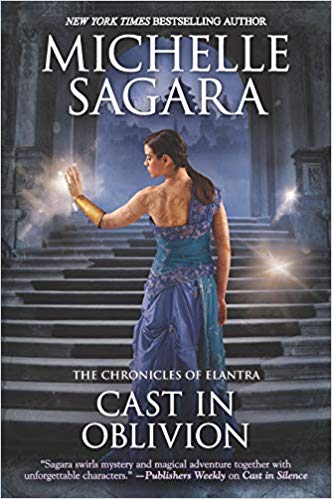 Cast in Oblivion (The Chronicles of Elantra, #14) by
Cast in Oblivion (The Chronicles of Elantra, #14) by 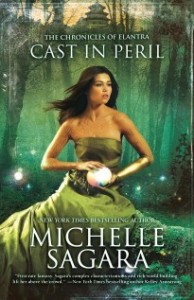 The
The 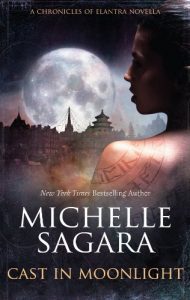 But in the end what draws me back to this series is the character at its heart, Kaylin Nera. She began the series in
But in the end what draws me back to this series is the character at its heart, Kaylin Nera. She began the series in 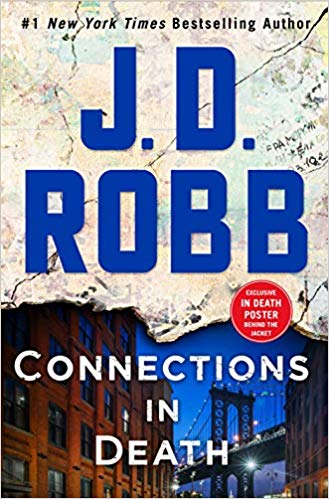 Connections in Death (In Death, #48) by
Connections in Death (In Death, #48) by 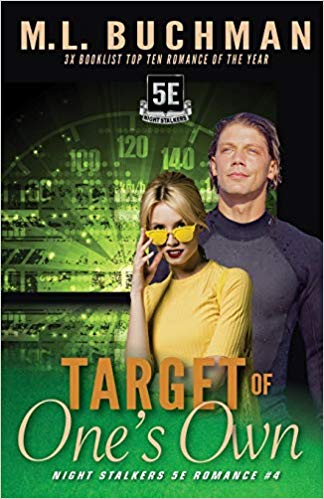 Target of One's Own (The Night Stalkers 5E) Format:
Target of One's Own (The Night Stalkers 5E) Format:  None of that ever happens in one of M.L. Buchman’s romances. The characters begin and end as equals – even as they find a way to both work together and make a romantic partnership. Sometimes they are both equal in the same sphere, as was true in his first
None of that ever happens in one of M.L. Buchman’s romances. The characters begin and end as equals – even as they find a way to both work together and make a romantic partnership. Sometimes they are both equal in the same sphere, as was true in his first 
 Current Giveaways:
Current Giveaways: Blog Recap:
Blog Recap: Coming This Week:
Coming This Week:






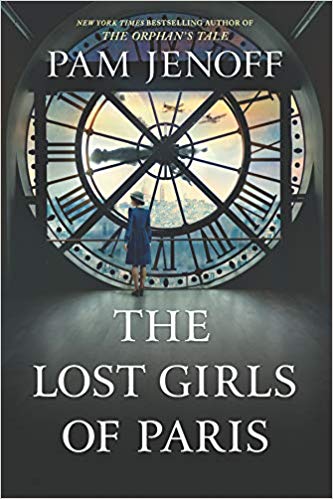 The Lost Girls of Paris by
The Lost Girls of Paris by  Author Info:
Author Info:
 Perennial: A Garden Romance by
Perennial: A Garden Romance by 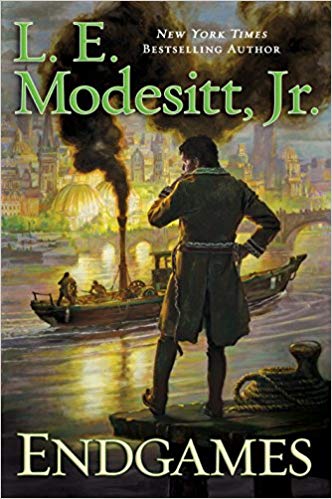 Endgames (Imager Portfolio #12) by
Endgames (Imager Portfolio #12) by 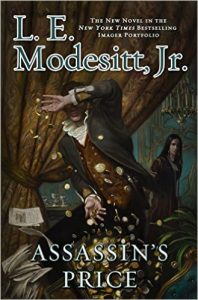 The events in Endgames directly follow the events in the previous book,
The events in Endgames directly follow the events in the previous book, 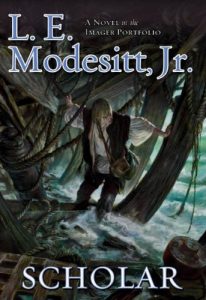 But Endgames is certainly the ending of this middle sequence of the series. Interested readers can begin the
But Endgames is certainly the ending of this middle sequence of the series. Interested readers can begin the 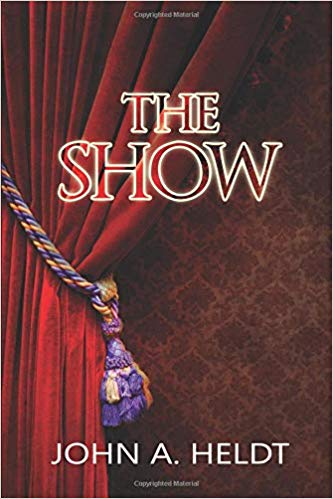 The Show (Northwest Passage #3) by
The Show (Northwest Passage #3) by  While The Show is the third book in the author’s
While The Show is the third book in the author’s  Escape Rating B: I enjoyed The Show, but it doesn’t hold up quite as well as my memory of The Mine – which you really need to read before going to The Show. Nor did it grab at my heartstrings in the way that The Journey did.
Escape Rating B: I enjoyed The Show, but it doesn’t hold up quite as well as my memory of The Mine – which you really need to read before going to The Show. Nor did it grab at my heartstrings in the way that The Journey did.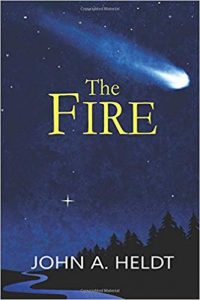 One final thought about that butterfly flapping its wings. Joel worried about changing the past and thereby changing his future. Grace, on the other hand, when the opportunity arises, rushes to change the past in a way that should prevent the future that gave birth to herself. It’s the ultimate paradox of time travel, and it bothers me that it isn’t addressed in any way.
One final thought about that butterfly flapping its wings. Joel worried about changing the past and thereby changing his future. Grace, on the other hand, when the opportunity arises, rushes to change the past in a way that should prevent the future that gave birth to herself. It’s the ultimate paradox of time travel, and it bothers me that it isn’t addressed in any way.